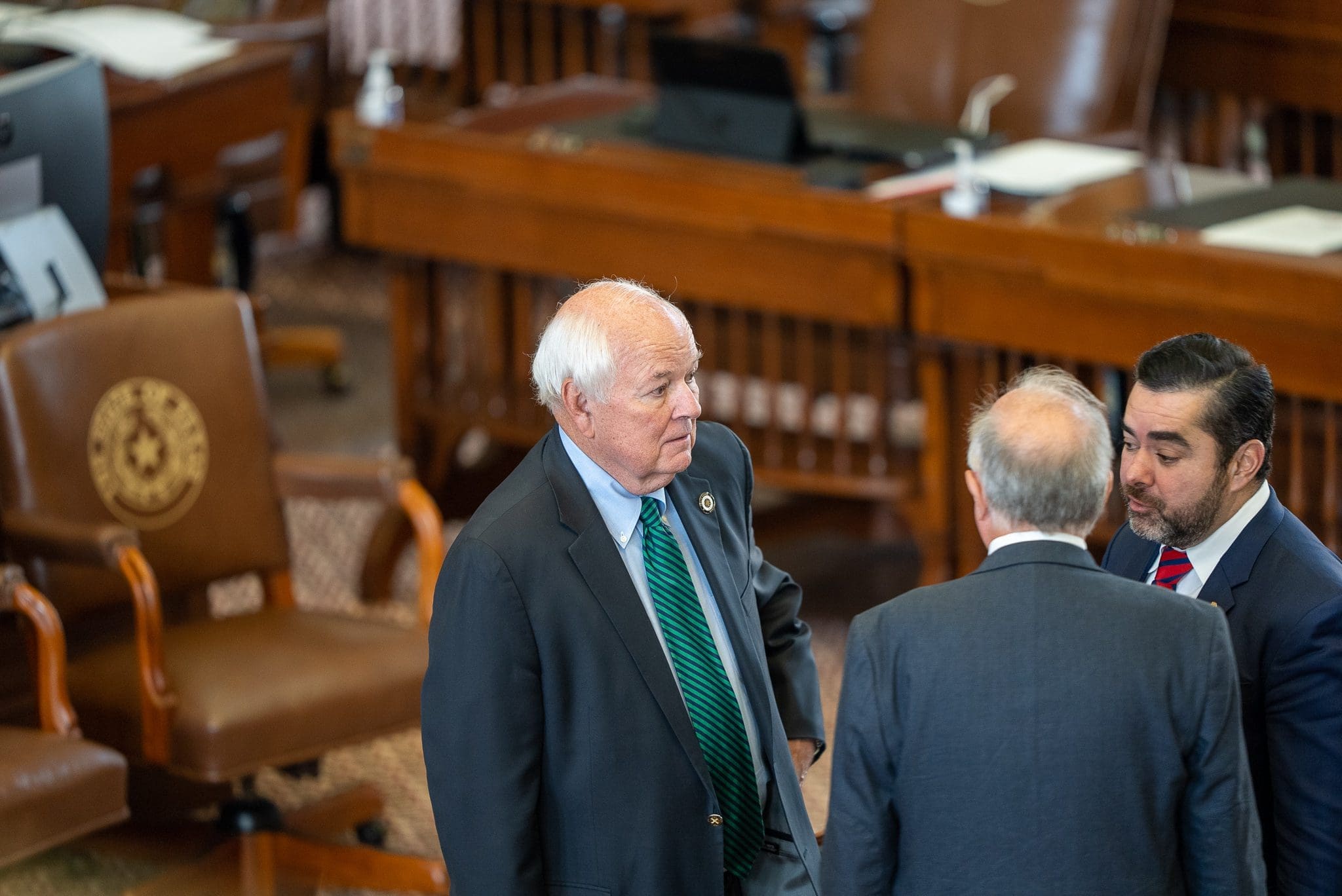Texas GOP priority legislation to restore felony penalties for illegal voting has finally advanced in the state House, with Republicans approving the measure and Democrats opposed.
House Bill 1243 by State Rep. Cole Hefner (R–Mount Pleasant) received preliminary approval on Thursday with a party-line vote of 83-63.
“I think our elections are important enough that we send a strong message and have strong penalties for illegal voting,” Hefner said during Thursday’s debate on the House floor. “This is simply putting it back to where it was for the previous almost half century.”
Illegal voting is a collection of offenses that includes stealing votes, double voting, and other forms of cheating.
HB 1243 amends Texas Election Code to increase the penalty for illegal voting from a Class A misdemeanor to a second-degree felony.
The bill fixes a problem lawmakers themselves created two years ago, when an amendment to last session’s comprehensive election reform bill reduced the penalty from a felony to a misdemeanor.
For the first time, the author of that controversial amendment, State Rep. Steve Allison (R–San Antonio), explained publicly why he proposed the change.
“My understanding was that was a recommendation of the attorney general’s office,” Allison said, describing it as a “cleanup” amendment that addressed vagueness in the code. Texas Attorney General Ken Paxton says Allison’s assertion that his office requested the change is false.
In the end, Allison voted to undo that amendment and approve HB 1243.
Hefner said the goal of his bill is to ensure elections are honest, secure, and fair, and to create a deterrent to those who would intentionally cast illegal votes.
“We must ensure that Texans are confident that legitimate votes are counted and not canceled out by someone who has illegally cast a ballot,” he said.
Democrats opposed the measure, saying it is unnecessary and would create a “chilling effect” on voters.
“Where are the court dockets full of persons accused of voter fraud or illegal voting? Where are the convictions?” asked State Rep. John Bucy (D–Austin), who offered an amendment to kill the bill.
“I truly believe that secure elections are not a partisan issue,” Hefner concluded. “This is not Democrat versus Republican. But fair and free elections are the bedrock of our form of government and they must be protected.”
A third House vote is needed to finally pass HB 1243 before it goes to the Senate for consideration.
The Senate passed a similar measure—Senate Bill 2 by State Sen. Bryan Hughes (R–Mineola)—more than a month ago, also on a party-line vote.
Lt. Gov. Dan Patrick made the measure a legislative priority for the Senate this session.
Although SB 2 was the only elections-related bill prioritized by Patrick, the Senate has passed a number of other reforms to increase transparency and accountability in election administration.
House Speaker Dade Phelan did not include any elections measures among his legislative priorities, and the Texas GOP says State Rep. Reggie Smith (R–Van Alstyne), who chairs the committee that considers elections bills, is blocking other GOP-priority legislation.
“There is a very small contingent of people within the party (yes, Republicans) who do not want these bills to see the light of day,” said Jill Glover, chair of the RPT’s Legislative Priorities Committee, in her most recent update on the status of the party’s priority bills. “This is wrong, and we encourage Chairman Smith to stop listening to bad advice and begin moving these bills.”
Smith’s House Elections Committee will consider several election measures during a public hearing on Thursday, including some Senate bills already passed by that chamber.
However, a number of House and Senate election security reforms prioritized by the Texas GOP remain backlogged in the House.
Protecting elections is one of eight legislative priorities of the Republican Party of Texas, as determined by delegates during the party’s state convention last year.
HB 1243 is the second RPT priority passed by the House this session and the first to address election integrity.
In the final weeks of the 20-week session, deadlines are approaching for legislation to finally pass both chambers and make it to the governor’s desk. The last day of the regular legislative session is May 29.





